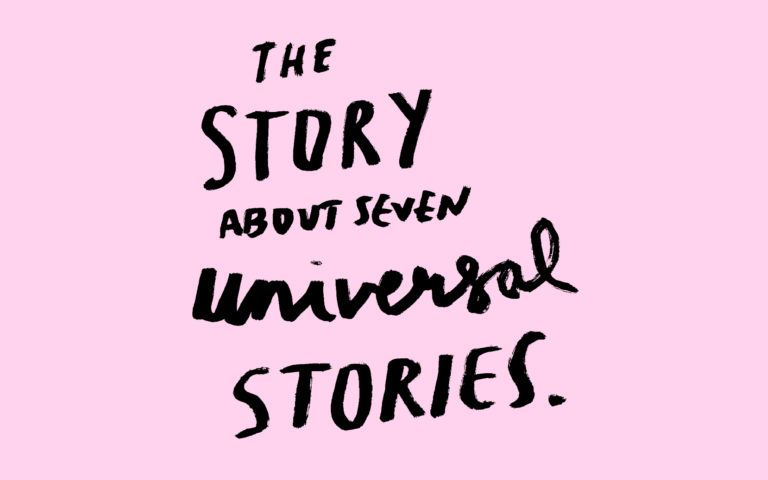Brand purpose. Love it? Hate it?
The electrically charged juggernaut of brand purpose has been careering downhill for some years now. Smashing through metaphorical fruit stands, launching the melons and other ripe fruit of perfectly acceptable ways of creating differentiation, relevance and growth for brands tumbling, pulverised, into the street. It reminds me somewhat of the start to Beverley Hills Cop (millennials possibly, and definitely Generation Z, look it up – but stick around for now as this involves you).
Some love purpose and believe that without one as your primary driver, your brand is irrelevant to millennials and Generation Z. These audiences are (apparently) demanding that a company’s purpose is aligned with their own beliefs. Some hate purpose, or at the very least find it wearisome. Many marketing commentators – who love nothing more than to suggest that things are dead – are questioning whether it has reached its peak purpose. Or – more dramatically – that it too is, well, dead. I’m instead looking forward to the headline: “Saying things are dead is dead”.
Even the most established brands are under pressure to extract a higher purpose. Or face the axe. Reports suggest that the lovable/hateable yeast-extract spread Marmite has been threatened with sale from the Unilever stable if it fails to “have a purpose”. According to the chief executive Alan Jope, if the likes of Marmite, Pot Noodle and Bovril don’t meet the company’s sustainability goals, they’ll slide out of the door much like Flora margarine.
But if that statement is to be believed, therein lies much of the confusion with brand purpose. Is purpose merely a way to express something beyond profit? A useful role in people’s lives?
Or is it way out beyond that? A higher political, social or environmental ideal?
So why not just accept that brand purpose can be either a purposeful role or a higher moral purpose? But how the marketing world is getting itself in a spin, and as some brands have come under fire, I would suggest that a little clarity is needed.
I think the confusion comes from the true definition of the word “purpose”: the reason for which something is done or created, or for which something exists. It’s that last word – “exists” – that sounds pretty strong to me. Now, if you are the clothing company Patagonia, your purpose is obvious: to build the best product, cause no unnecessary harm and use business to inspire and implement solutions to the environmental crisis. Patagonia’s purpose has been baked in from its foundation: it has a transparent supply chain, promotes social justice for its workers and creates durable products that, wherever possible, are made from recycled, fair-trade or organic materials. Patagonia’s purpose is a higher one that’s born of Yvon Chouinard’s founding vision. Alex Weller of Patagonia puts it well: “You can’t reverse into a mission and values through marketing.”
And there’s the rub. That can often feel like it is precisely what some brands are doing. A couple of years ago, Pepsi’s incredibly ill-conceived Kendall Jenner ad faced criticism for trivialising demonstrations aimed at tackling social justice issues. According to Pepsi: “Pepsi was trying to project a global message of unity, peace and understanding.” The protesters cheer after Jenner hands a can of Pepsi to a police officer. He takes a sip and smiles at his colleague. Then everybody lives happily ever after. One of those mocking the advert was Bernice King. She tweeted a photo of her father, civil rights leader Martin Luther King, being confronted by a police officer at a protest march. Now there’s a man with a purpose.
I read one article proclaiming that Nike’s decision to use Colin Kaepernick as the face of their campaign had completely redefined their brand purpose. Which is broadly: “If you have a body, you’re an athlete.” Now I think that’s a pretty good purpose. But the suggestion was that because Kaepernick had immersed himself in controversy – refusing to stand for the US national anthem in protest of wrongdoings against African Americans and minorities in the United States – Nike had now adopted some higher purpose beyond sport. Granted, it’s a bold move on Nike’s part to go beyond sport, but watch the main guts of the ad and it looks very much to me like a Nike “If you have a body, you’re an athlete” ad. The fact that the ad goes one stage further, with Kaepernick delivering the provocative line: “Believe in something. Even if it means sacrificing everything”, is a classic advertising technique of dramatising a message. That’s not to suggest that Nike isn’t making a stand too, but they aren’t reinventing their core purpose. Nike’s action certainly delivered on Bill Bernbach’s old adage: “A principle isn’t a principle until it costs you something”, with the share price taking an initial dip. But it didn’t take long for it to have the reverse effect – the share price going up. Nowadays, it appears that a principle isn’t a principle until it makes you money.
Grow, written by Jim Stengel in 2011, did much to popularise the idea that brands with a purpose or ideal that goes beyond profit grow faster than their peers. Its straightforward simplicity provided a digestible formula for time-pressed execs. The ever-insightful behavioural scientist Richard Shotton took a more balanced look at Stengel’s method and findings, and put into question their validity. What perhaps was most interesting from Shotton is his observation that Stengel used these definitions for three of the brands:
Moët & Chandon “exists to transform occasions into celebrations”.
Mercedes-Benz “exists to epitomise a life of achievement”.
BlackBerry “exists to connect people with one another and the content that is most important in their lives, anytime, anywhere”.
The problem: these definitions could apply to any champagne, luxury brand or handset provider. Shotton pointed out that many of the ideals are just category descriptors. And if the term “ideal” can cover anything, then it’s meaningless.
Art director Dave Dye wryly points out on his encyclopedic advertising blog, Stuff from the Loft, that charcoal inserts which “Stop sneakers from smelling” get elevated to “Creators of a nose-friendly planet”.
Like Shotton, Dye points out: “It seems to replace specific reasons for buying a product with generic claims that aren’t even specific to the product category, let alone the product.”
The problem with many of the campaigns driven by brand purpose is that they often treat the idea of selling as an anathema. True, millennials and Generation Z are evaluating advertising communication in a different way than they did in the past. But perhaps much of this can be solved by breaking with tired old execution formats.
Tony Davidson of Wieden + Kennedy often talks about the idea of creating ads that don’t look like ads. And that’s a good idea, whether there’s a purpose or not.
Yes, a higher purpose is admirable for some brands on some occasions. But there’s a full toolbox of strategies from which to choose. As the saying goes: “If your only tool is a hammer, then every problem looks like a nail.”
It’s powerful when an opinion or point of view sits at the core of a brand. But similarly, it can be an act performed by a brand, in tune with who they are, but not their reason to exist. Brands that seek to play a credible and motivating role in people’s lives should thrive. That can be as simple as providing a salty, tasty spread for your toast as an alternative to sugary breakfasts. I’m not sure Unilever have noticed Marmite’s “Rich in B vitamins” message on the pack, which feels reasonably worthwhile to me. Particularly for those who are suffering from a vitamin-B12 deficiency. Now I know that’s a feature, but plenty have jumped on less in the quest for a purpose. Then there’s the fact that it’s a planet-saving 100% vegetarian. That doesn’t seem to cut the Colman’s either. It appears that they’re looking for so much more, which is admirable. For me, whether this has to be their defining purpose in life is questionable. Marmite is a great product with a legendary positioning and some fantastic campaigns. If it wants to improve its sustainability credentials along the way, then brilliant. If however, it transpires that its secret ingredient is pureed unicorn liver, then one thing’s for certain: Generation Z will go from loving it to hating it.
— DB
Subscribe to Squad

Get our annual printed newspaper plus our email digests full of inspiration, thoughts, tools and the interviews.
Subscribe
I have a dream
We examine what Martin Luther King can teach us about painting a rich picture of how a different world could look – a vital component of any position.

The story about seven universal stories
Have you heard about the idea that there have only ever been seven basic story plots? Fact or fiction, we liken story plots to positions and explore how the art of bringing them to life is as important as having the idea in the first place.


